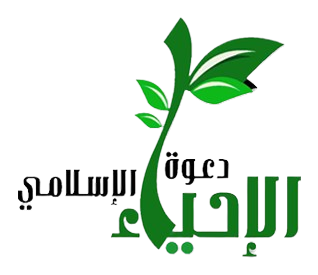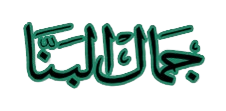Fawzia and Gamal Al-Banna Foundation
The activities of the institution
The first aspect, which pertains to culture, includes:
(a) Advocating for the renewal of Islamic thought and a return to its pure source, the Quran, so that Islamic societies can engage with the era and confront its challenges with guidance, insight, and the deepening of values of freedom, justice, knowledge, and action.
(b) Disseminating books and research that achieve the aforementioned goal.
(c) Holding seminars to discuss some social issues of particular importance to benefit from the opinions of thinkers, scrutinize them, and produce recommendations or conclusions.
(d) Assisting in establishing libraries in mosques, clubs, and community centers.
(e) Organizing correspondence study courses, especially in remote regions or areas, by providing sets of books for study according to the principles of correspondence study programs.
(f) Assisting certain disabled groups in continuing their cultural activities, as well as expatriate students.
(g) Establishing an open reading hall for students and researchers in the field of social and Islamic issues.
The second aspect is dedicated to Islamic media.
(a) Disseminating and broadcasting the truth about Islam, highlighting its foundations of tolerance, justice, and civilizational values, fostering intercultural understanding, and refuting false claims that distort its image such as bigotry and violence.
(b) Translating writings that emphasize the aforementioned truth into living languages and disseminating them.
(c) Engaging with universities, research institutions, and media agencies to convey the message of the institution.
(d) Contributing to international conferences addressing Islamic issues, aiming to foster dialogue between religions and promote friendly relations among them.
(e) The institution does not have a political or partisan affiliation, and its activities are solely focused on the cultural and media fields.
How to manage the organization
- The institution is managed and its policy is set by a board of directors with no less than five members, which includes:
- Mrs. Fawzia Al-Banna, President
- Mr. Gamal Al-Banna, Managing Director
- And a number of other believers in the idea and participants in it. The Managing Director is responsible for implementing the Council’s decisions and representing the institution in an official capacity. The Council meets once every three months
- The Foundation shall have a Board of Trustees of 13 to 21 members to provide constructive suggestions and advice aimed at strengthening the Foundation and doubling its effectiveness.
- A full-time director is appointed for the institution who has faith in the idea and integrity, and he is responsible for daily management and maintaining the books. An assistant to the director is appointed to assist him in his work, and organizes the work. An assistant or staff is also appointed to carry out cleaning work, and an appropriate monthly salary is allocated to each one.
- The institution maintains regular books that include indexes of books classified according to topics and authors, as well as inventorying the copies of each book of Dar Al-Fikr Al-Islami. And books of accounts for the institution that include incomings, outgoings, tax and insurance accounts, and so on. The accounts are supervised by an accountant.
legal - A specialized lawyer shall prepare a detailed list in accordance with the applicable laws. The institution follows a policy that aims to achieve a profit that covers the costs of its activity, prevents its capital from eroding its independence, and highlights its artistic nature.
- The headquarters of the Foundation is in Cairo, and branches may be formed if the interest so requires
- The Foundation began its work on January 1, 1997
MR Gamal al-Banna
Professor Jamal Al-Banna was born in 1920. He worked as a lecturer at the Workers’ University and specialized institutes from 1963 to 1993. He was also an expert at the Arab Labor Organization. He authored and translated one hundred books on Islamic, labor, and political subjects.
In 1953, he founded the Egyptian Association for the Care of Prisoners and Their Families. Additionally, in 1981, he established the International Islamic Labor Union in Geneva. Professor Jamal became a widower in 1989.
His wife, Fawzia, and Professor Jamal had a brother, and their father was the scholar Sheikh Ahmed Abdel Rahman Al-Banna, the author of the encyclopedic work “Al-Fath Al-Rabbani” in categorizing and explaining the Hadith collection of Imam Ahmad Al-Shaibani in 24 volumes. Their elder brother was the martyr Imam Hassan Al-Banna, the guide and founder of the Muslim Brotherhood.
The founders intended to conclude their lives with this cultural and scientific work so that they could be rewarded by God and so that their work would not cease in this world, in accordance with the prophetic tradition.


